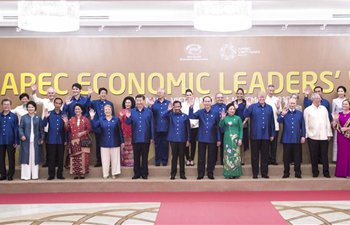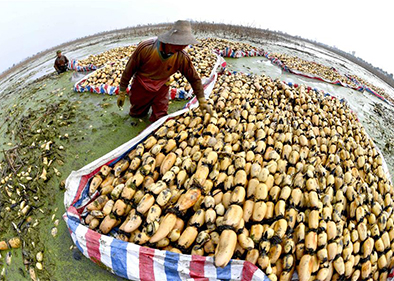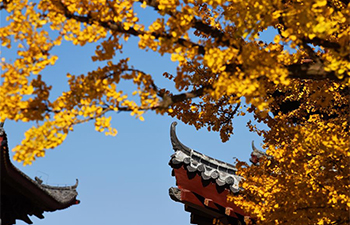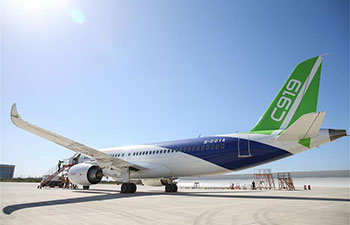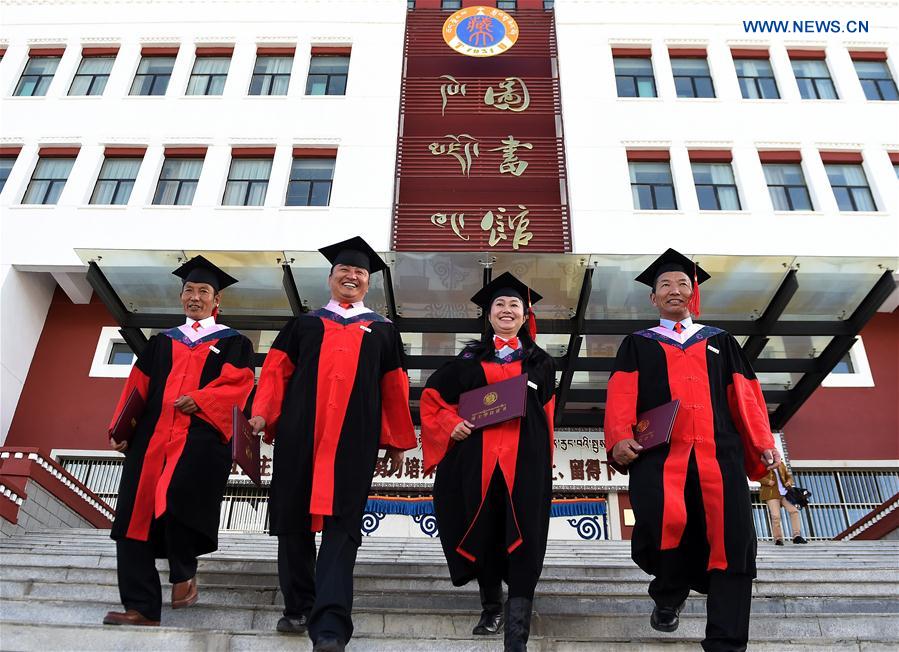
Four PhD graduates are seen after a graduation ceremony at Tibet University in Lhasa, southwest China's Tibet Autonomous Region, Nov. 10, 2017. Four PhD candidates researching Tibetan history, language or medicine became the first group of holders of doctorates awarded by a Tibetan university. (Xinhua/Chogo)
MINIATURE OF REGIONAL DEVELOPMENT
According to Cedain Zhaxi, young people like Soinam Cering have a good command of both Mandarin and foreign language, enabling them to learn new research methods and helping them innovate in studying Tibetan history.
"Their broad vision will help fill the gaps of our previous generations," he said. "They are lucky, born in a new era with the rapid education development of our country."
Before Tibet was emancipated, only 5 percent of local people, from the families of land lords or rich merchants, had a chance to receive education, mostly in monasteries or old-style private schools.
"Tibetologists like us mostly received education after the emancipation," Cedain Zhaxi said, adding he was a beneficiary himself.
Cedain Zhaxi graduated from Tibet University in 1985 and stayed on to teach. Four years later, he was sent to Beijing-based Minzu University of China for further study.
Tibet University was authorized to award master's degrees in 1998, and doctor's degrees in 2013.
Cedain Zhaxi said the progress of Tibet University to offer higher educational degrees was a miniature of the development of higher education in Tibet.
Over the past six decades, the region has formed a modern educational system that covers every level of education.
It offers free education for 15 years from kindergarten to senior high school, one of the first provincial regions in China to do so.
The college admission rate for children of Tibetan farmers and herders reached 75.4 percent this year, according to educational authorities.
Currently, Tibet has seven higher education institutions, with over 60 students pursuing doctorate degrees.
Tao Ran, with the regional education department, said more universities in the region would apply for permits to grant master's and doctoral degrees, particularly in disciplines such as ethnic culture and plateau science, where they have an advantage.
"The higher education of Tibet has now started a new page," he said.




